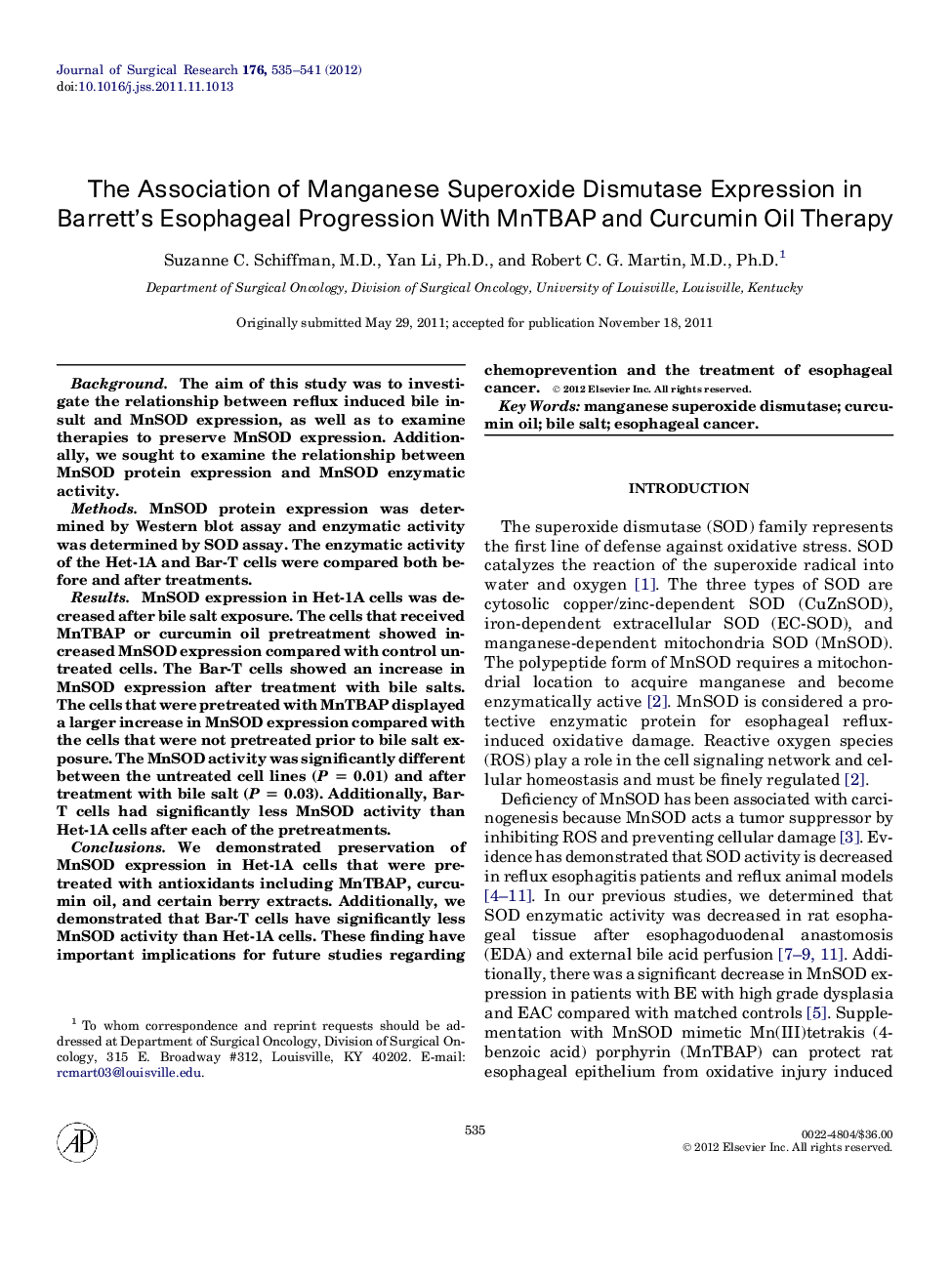| Article ID | Journal | Published Year | Pages | File Type |
|---|---|---|---|---|
| 4301937 | Journal of Surgical Research | 2012 | 7 Pages |
BackgroundThe aim of this study was to investigate the relationship between reflux induced bile insult and MnSOD expression, as well as to examine therapies to preserve MnSOD expression. Additionally, we sought to examine the relationship between MnSOD protein expression and MnSOD enzymatic activity.MethodsMnSOD protein expression was determined by Western blot assay and enzymatic activity was determined by SOD assay. The enzymatic activity of the Het-1A and Bar-T cells were compared both before and after treatments.ResultsMnSOD expression in Het-1A cells was decreased after bile salt exposure. The cells that received MnTBAP or curcumin oil pretreatment showed increased MnSOD expression compared with control untreated cells. The Bar-T cells showed an increase in MnSOD expression after treatment with bile salts. The cells that were pretreated with MnTBAP displayed a larger increase in MnSOD expression compared with the cells that were not pretreated prior to bile salt exposure. The MnSOD activity was significantly different between the untreated cell lines (P = 0.01) and after treatment with bile salt (P = 0.03). Additionally, Bar-T cells had significantly less MnSOD activity than Het-1A cells after each of the pretreatments.ConclusionsWe demonstrated preservation of MnSOD expression in Het-1A cells that were pretreated with antioxidants including MnTBAP, curcumin oil, and certain berry extracts. Additionally, we demonstrated that Bar-T cells have significantly less MnSOD activity than Het-1A cells. These finding have important implications for future studies regarding chemoprevention and the treatment of esophageal cancer.
